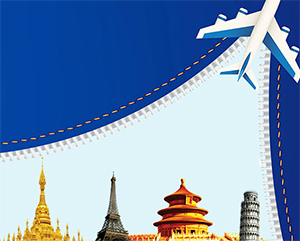
- ①Dentists who are viewing our homepage, are you satisfied with your work and daily life as a dentist?
- ②How many of you are satisfied?
- ③ Those who are not satisfied, why can't you be satisfied?
Many doctors are dissatisfied with the low points of insurance treatment, and they cannot manage their business unless they handle a large number of cases. Even if they want to treat their patients carefully, they don't have enough time, and considering the cost of sterilization and other labor, it is not economically viable. To put it bluntly, they have to compromise somewhere or they will go bankrupt. In Tokyo, the number of dental clinics is said to be six or seven times that of convenience stores.
Whether you have your own clinic or work as an employee, why don't you change your way of thinking here?

A great idea
Two salesmen who sell shoes went to Africa for business. One of them looked at the local situation and contacted the president. President, it's no good. No one here wears shoes. They won't sell.
The other one contacted the president. President, it's a chance. No one here wears shoes. No one sells shoes. They will sell.
Which salesman is right?
I think that the market perspective of medical and dental care in the future should be placed overseas. As the word medical tourism already exists, many foreigners come to Japan, receive medical checkups, treatments, and enjoy sightseeing at the same time. That is because they know the high level of medical technology and service in Japan,
and they do not want to have examinations in their own countries.
However, those who come to Japan for this purpose are quite wealthy and it is said that it is financially impossible for ordinary people.
So what should we do?

If the patient can't come, we'll go.
Where to go, not just to Africa. It's possible in every country.
What about the language problem, what about the housing problem, how much salary can I get?I think you will, of course, nervous.
But these can only be solved by doctors themselves.
What is the significance of working overseas?
Perhaps many of you are doing both insurance and non-insurance treatments, but I think the main situation is insurance with occasional non-insurance. However, overseas, most of the treatments are free, and each dental hospital and clinic can decide on their own. Therefore, I cannot explain how much a filling or an extraction costs now.

For reference, the normal (not impacted) extraction of the upper 8th tooth at a dental clinic in China was about 30,000 yen, the root canal treatment of the large molar was about 70,000 yen, and the resin filling of the WSD was about 16,000 yen. Of course, there are clinics that are cheaper or more expensive than this. The treatment time is decided by the dentist at most clinics. You can set it as you like, as long as the patient agrees, whether it is one hour, two hours, or all day. Generally, it is one to two hours per patient.
If you work eight hours a day, the number of patients per day will be about four to eight. There are also doctors who specialize in implants, and doctors who only do orthodontics.
What do you think? Don't you think you can do a proper treatment with this number of patients?
Why do you work in the medical field overseas?

This is my personal opinion, but I think it is impossible to make a living with only insurance treatment in Japan.
You have to sacrifice either yourself and your family, or your patients. I think the reputation of Japanese people overseas is quite good. Even Chinese people who say anti-Japan, anti-Japan, there are many patients who prefer Japanese dentists when there are Japanese and Chinese dentists. There is more trust in Japanese products and Japanese people than we Japanese think.
By the way, some Japanese dentists charge 25% more than Chinese dentists. Also, some clinics really need Japanese dentists, and they will provide interpreters for you. I am using China as an example now, but I think it is the same in other countries.
What you need to work hard for to work overseas
You need to be positive about working overseas, be satisfied with the food of the country you want to go to, and have a willingness to learn the language of that country. Most of the patients who come to high-priced clinics are from Western Europe, America, overseas Chinese, etc., and can speak English.
Therefore, it is not essential, but if you can speak English and the local language, you will have a lot more options.




